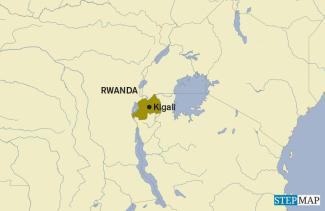Plastics ban
Finding alternatives

Now, Rwanda is taking this policy a step further. Beginning this year, it will ban all other types of single-use plastics, such as straws, coffee stirrers, soda and water bottles, plastic cutlery, balloons and almost all food packaging.
The law aims to protect the environment, the economy and the health of the people from throwaway plastics. Rwanda’s Environment Management Authority blames flooding and low agricultural productivity in part on improperly discarded single-use plastics, because this can prevent rainwater from penetrating into the soil. Plastic also clogs drains, which in turn creates a breeding ground for diseases such as malaria that are transmitted by bugs or parasites. Malaria is a leading cause of infant mortality in Rwanda.
Moreover, toxic chemicals used for manufacturing plastic often enter the food chain when animals consume them. This is a concern since a big proportion of the population’s diet is meat. Also, when plastic disposed of by burning, that contributes to air pollution.
Rwanda aims to be completely plastics free by the end of 2020, with a few exceptions such as plastics needed for packaging vaccines and other medicines, certain items sold at hotels, and plastics used for wrapping frozen foods.
Rwanda is one of 34 African nations imposing restrictions on single-use plastic bags. Africa is taking the lead in such rules, possibly because it has no strong plastics-industry lobby and exports very little plastic. Africa also has relatively low rates of waste collection and recycling, which makes plastic litter more visible than elsewhere.
Rwanda’s ban on single-use plastic packaging for food creates some tricky problems for importers, manufacturers, traders and consumers. Manufacturers or retailers, for example, are required to put mechanisms in place to collect and segregate used plastics for recycling. At an individual level, any person found disposing of single-use plastic items will be fined and required to repair the damage caused.
Retailers have about three months in early 2020 to sell off any goods that are packaged in throwaway plastic. Industrial manufacturers have two years to change their processes to avoid single-use plastic packaging. After those grace periods, noncompliance could mean heavy fines, loss of trading licenses and even closure of the business.
Some consumers wonder how all this will work. B. Cyuzuzo Deborah, a student at the University of Rwanda, says, “I cook at home and don’t use food delivery apps so I am not worried about plastic packaging there. But I am not sure what would be an alternative to plastic to hold a packet of biscuits that is not made locally, or to hold a fizzy drink when one is on the move.”
The government’s reply is to consider using paper, bamboo or wood-based packaging as alternatives to plastic.
“Consumers should ponder how items were sold and used before there was so much plastic around,” says Vincent Biruta, who until recently was the environment minister and a driving force behind the new law. When asked what consumers should use instead of plastic straws at a pub, he replied, “what did you use for drinking local beer before the advent of plastic straws?”
Roli Mahajan is a freelance journalist.
roli.mahajan@gmail.com








